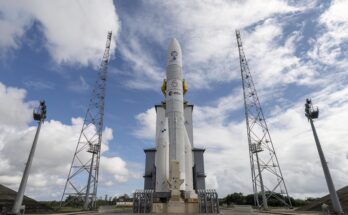By Bill Ostrove, Forecast International
Over the past few years, there has been growing concern in some circles that export restrictions have held U.S. manufacturers back. With the recent economic crisis and a push to increase American exports to revitalize the manufacturing sector of the economy, International Traffic in Arms (ITAR) restrictions have received renewed attention.
On January 3, the National Defense Authorization Act (NDAA) for fiscal year 2013 was signed into law. The bill included a provision to repeal the 1999 law that placed U.S. satellites and spacecraft components on the munitions list. The new law allows many spacecraft and components to be placed on the Commerce Control List (CCL), which is managed by the pro-business Commerce Department rather than the Department of Defense, which is concerned with military security. Restrictions still apply. For example, restrictions are still placed on satellite exports to countries like China, North Korea, and Iran. However, waivers may be granted for China if a satellite is being exported there to be launched by a Chinese rocket. Export of hosted payloads and other U.S. government furnished equipment will also remain restricted.
The effect these rule changes will have on the global commercial communications satellite industry is difficult to quantify. The Aerospace Industries Association trade group estimates that between 1999 and 2009, trade restrictions cost U.S. companies $21 billion and 9,000 jobs. However, there are other factors that could have contributed to those figures. For example, many European manufacturers can now compete with their U.S. counterparts on price and technology.
In any case, the changes will likely make U.S. manufacturers more competitive globally, providing some relief to companies such as Boeing and Lockheed Martin that have relied heavily on the U.S. government for sales. Other U.S.-based satellite manufacturers like Space Systems/Loral and ATK Orbital will also benefit. The new rules could also increase pressure on European manufacturers, such as Airbus Defence & Space and Thales Alenia Space.
A military history enthusiast, Richard began at Forecast International as editor of the World Weapons Weekly newsletter. As the Internet grew in importance as a research tool, he helped design the company's Forecast Intelligence Center and currently coordinates the EMarket Alert newsletters for clients. Richard also manages social media efforts, including two new blogs: Defense & Security Monitor, covering defense systems and international issues, and Flight Plan, which focuses on commercial aviation and space systems. For over 30 years, Richard has authored the Defense & Aerospace Companies, Volume I (North America) and Volume II (International) services. The two books provide detailed data on major aerospace and defense contractors. He also edits the International Contractors service, a database that tracks all the contractors involved in the programs covered in the FI library. More recently he was appointed Manager, Information Services Group (ISG), a new unit that encompasses developing outbound content for both Forecast International and Military Periscope.



